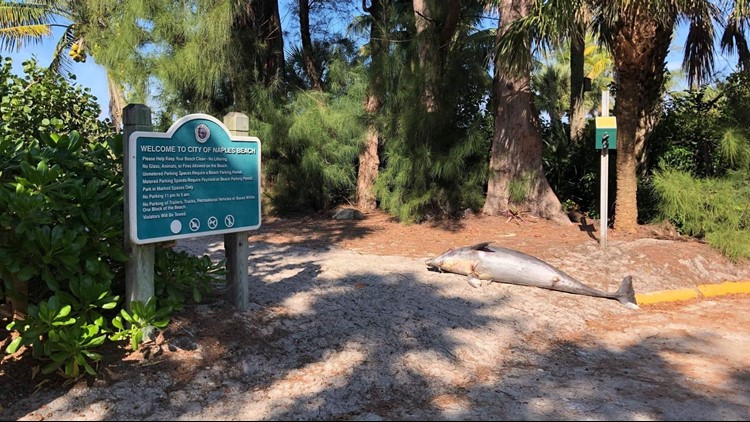Toxins produced from nasty blue-green algae made an appearance in dead dolphins that tested positive for brain disease.
The Miami Herald reports a University of Miami study found in all but one of the 14 dolphins it examined, the BMAA toxin was detectable in those that showed signs of degenerative damage similar to Alzheimer's in humans.
The one dolphin died from a boat strike.
Researchers are trying to figure out to what extent the algae's toxins, which have plagued Florida's waterways in recent years, threaten human health. It is concerning enough as dolphins are considered a sentinel species -- one that could give warning of issues that might affect humans.
“Not to be too political, but it goes to show the health of marine animals and water quality,” said David Davis, lead author and a University of Miami Miller School of Medicine neuropathologist, to the Miami Herald.
“Everything’s directly related.”
Seven of the 14 dolphins were Florida bottlenose, and all had three times the amount of toxins than the remaining seven found dead off Massachusetts. The Herald reports researchers believe it's because they are more likely to swim closer to shore where the blooms occur and eat smaller marine life that consumer the algae.
Researchers cannot yet say there is a direct link between the BMAA toxin and brain disease as the study involved so few dolphins. However, they reportedly have begun a second study using some of the nearly 150 dolphins found dead during last year's algae blooms.
What other people are reading right now:
- No kids allowed, tropical breezes included: Florida Keys' first all-inclusive resort opens
- Florida couple forgot they left their toddler at the park for hours: deputies
- Man electrocuted trying to use a metal pole to remove bird from power line
- Fifth earthquake strikes near Alabama-Florida state line
- 'Dreamer' flight attendant detained by ICE after flying to Mexico for her job
►Make it easy to keep up-to-date with more stories like this. Download the 10News app now.
Have a news tip? Email desk@wtsp.com, or visit our Facebook page or Twitter feed.



